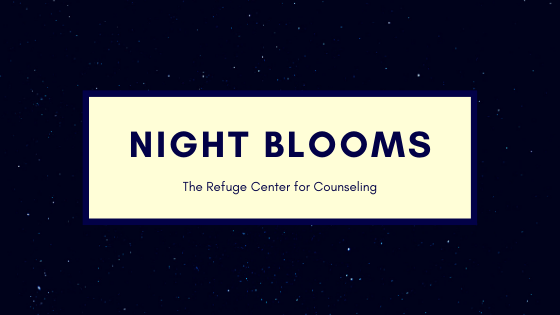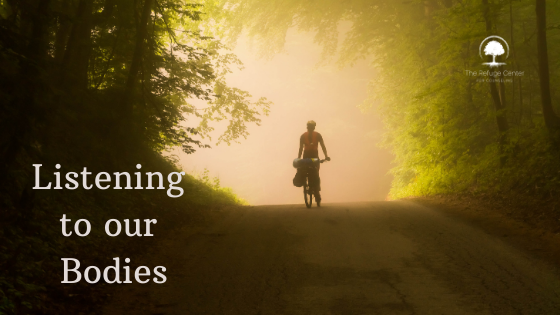As fall comes into focus and colder weather starts peeking through, we enter into a new season. For many, the fall season brings a familiar sense of busyness with school in full swing, football back on the field, fall activities on our to-do list, and the beginning of our descent into the holiday season. In many ways, October can feel like the kick-off into the season of hustle and bustle. With holiday busyness on the horizon, October holds an opportunity for grounding and intentional thoughtfulness around how to show up in this season. For me, two desires come to mind: slowness and presence. I want to instill slowness to savor the moments to come, and presence to be fully connected and available for myself and my family.
When thinking about how to cultivate a life of presence and intentionality, one simple yet life-changing practice comes to mind; self-care. Providing space in our lives to participate in self-care allows us to show up as the best versions of ourselves and love others from a place of fullness. It can have massive positive impacts on our mental health, emotional regulation skills, sense of self, ability to feel grounded, and relational health. When considering how implement meaningful life change, self-care is a wonderful skill to establish.
What is self-care?
According to Oxford Languages, self-care is “the practice of taking action to preserve or improve one’s own health.”
This definition addresses that our health is our responsibility. From the lens of physical health, this idea seems familiar to us. Generally, we understand that how we treat our bodies can have positive or negative effects on our weight, mood, cognition, and a variety of other aspects of our health. When it comes to our mental health, however, we seem to be uncomfortable acknowledging the importance of caring for our emotional selves. As with our physical health, there are consequences to leaving our emotions unattended. The longer we go without providing support to our needs, the more tired, burnout, overwhelmed, and disconnected we become.
Self-care, from a mental health perspective, is an invitation to engage with our emotions on a regular basis. It is a time set aside to connect with our feeling and become more aware of our needs. It’s a consistent place for internal check-ins, to enable us to approach our lives in a more centered and connected way. In this practice, we can learn to fill our emotional cup and interact with the world around us from a position of fullness, understanding, and rest. Self-care involves participating in the regular practice of intentionally understanding and caring for the needs of your heart. It encourages us to create margin in our lives to breath, connect with ourselves, and engage in the kinds of leisure activities that are life giving.
How to engage in self-care
The starting point of implementing self-care practices into our lives, begins with an exploration phase. This journey begins with discovering the ways in which you enjoying connecting with yourself and deciding the types of practices that fit into your lifestyle. The practical application of self-care can look differently for everyone. We are unique creatures with different thoughts, feelings, and desires to explore and meet. For some, renewal and reflection can be best promoted through interaction with nature. This could include walks outside, hiking, biking, camping and spending time outside. For others self-care could look like tapping into creative outlets such as cooking, creating music, writing, journaling, or painting. There are endless ways we can care for ourselves; the idea is to discover the uniqueness of an environment to best promote personal self-connection.
Self-care activities can vary in length – some might be a 15-minute bath, a 20-minute journal session, or a 25-minute run. Others activities could take several hours such as a lengthy hike or picnic in the park. If implementing self-care into your daily routine feels daunting, try starting small. Begin to notice the moments of your day that you enjoy, and build on those places. Self-care can be as simple as enjoying a cup of coffee.
What self-care is not
When beginning to understand self-care principles, we might run into the thought process that taking care of yourself is selfish. We are often driven to be attuned to the needs of others and have a desire to meet those needs. We want to address the needs of our clients or loved ones, and there is nothing wrong with that. However, it would be beneficial to debunk the myth that taking care of ourselves inhibits us from meeting the needs of someone else. Self-care is not denying the needs of another in order to serve ourselves. It is not self-seeking, prideful, or harmful to anyone else. It is taking care of ourselves in order to benefit ourselves and those around us. If we begin to prioritize our emotional wellbeing, we might find a renewed patience, tolerance, understanding, and empathy for those around us. If we have an understanding of the emotions inside of us, we are less likely to project those emotions onto others. If we take ownership of our emotional world, we are less likely to look to others to fill our cup. If we participate in regular check-ins with ourselves and provide nurture to the hurting parts, we are able to be more fully present with those we love. Our emotions are our responsibility, and when we take ownership of them our relationships can thrive. Self-care is a way we can sacrificially serve our families, friends, children, and close relationships.
Summary
Self-care is a practice to encourage connection with one’s inner self and tend for the needs of the heart. This practice involves creating an awareness of emotions, identifying inner needs, and learning to provide care for those needs. The idea is to cultivate an understanding and tenderness to one’s inner self. Journaling, praying, meditating, and reflecting are all common ways for individuals to connect with their heart. The key to self-care is to create and maintain a relationship with one’s own heart and unveil the complexities that are within. The more one can uncover deep emotions, name them, and interact with them, the more centered and aware they become. Self-nurture is a sacred invitation to explore the deep places of the human heart and live fully from a place of emotional awareness and abundance.
If you would like assistance in your journey toward living a connected, intentional, and present life, The Refuge Center would love to walk alongside you. We exist to serve the mental health needs of our community and offer care for a multitude of presenting issues. No matter where you are on your journey towards health, we are here to serve your individual and unique needs.
By Gray Hernandez, Master’s Level Intern




